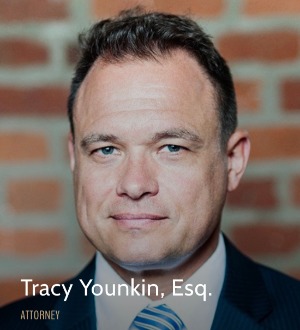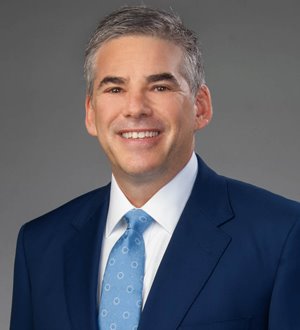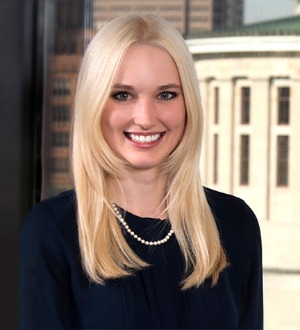On July 19, 2022, the Federal Trade Commission and National Labor Relations Board entered into a Memorandum of Understanding regarding what they called their shared “interest in protecting American workers and promoting fair competition in labor markets.”
In the memorandum, the FTC and NLRB stated that they “recognize that continued and enhanced coordination and cooperation concerning issues of common regulatory interest will help to protect workers against unfair methods of competition,” including “the imposition of one-sided and restrictive contract provisions, such as noncompete and nondisclosure provisions.” This follows President Biden’s executive order of July 9, 2021, directing the FTC to consider using its “statutory rulemaking authority under the Federal Trade Commission Act to curtail the unfair use of noncompete clauses and other clauses or agreements that may unfairly limit worker mobility.”
Considering this context, federal regulation that affects the use of noncompete agreements and other restrictive covenants, such as non-solicitation and nondisclosure agreements, appears to be in the offing. What can employers expect?
Recent Congressional bills provide clues. The Freedom to Compete Act was introduced into the Senate on July 15, 2021, by Senators Marco Rubio (R-FL) and Margaret Hassan (D-NH). If enacted, it would ban noncompetes nationwide for workers classified as nonexempt pursuant to the Fair Labor Standards Act. It would also apply to agreements inked before the bill’s passage. It would not ban confidentiality agreements used to protect trade secrets or other proprietary information as defined by law.
Rubio and Hassan’s bill follows a batch of state legislation regulating the use of noncompetes for low-wage workers. As of January 1, 2022, Illinois, Maine, Maryland, Massachusetts, New Hampshire, Nevada, Oregon, Rhode Island, Virginia and Washington all began imposing a wage thresholds on the enforceability of noncompete agreements.
Another piece of potential legislation is the Workforce Mobility Act, introduced by a bipartisan group of four senators on February 2021. A counterpart bill of the same name was introduced concurrently in the House. The act would ban all noncompete agreements except those entered into in connection with the sale of a business or the dissolution of a partnership, or those signed by senior executive officials in conjunction with a severance agreement.
Both the Freedom to Compete Act and the Workforce Mobility Act remain under consideration by the Senate Committee on Health, Education, Labor and Pensions; the latter is also under consideration by the House Subcommittee on Consumer Protection and Commerce.
The Current State of Affairs
The passage of either bill or similar legislation would markedly change the use of restrictive covenants. Currently, these are governed by state law, which necessarily results in a legal patchwork across the country. Some states dictate the use and scope of covenants through statutes; others leave it to the courts to develop applicable law over time. Some, such as California and North Dakota, ban noncompetes outright, while most permit them within certain parameters.
To make things still more complicated, most states that permit noncompetes enforce them case by case, causing uncertainty and prompting costly litigation. In Indiana, for example, noncompetes are disfavored and will be enforced only if they’re narrowly tailored to protect the employer’s legitimate business interests in terms of the time, geography and scope of restricted activities. In addition to the employer’s legitimate interests, Indiana courts now require restrictive covenants to be tailored to the services actually performed by the restricted employee on behalf of the employer.
If enacted, it would ban noncompetes nationwide for workers classified as nonexempt pursuant to the Fair Labor Standards Act."
In Clark’s Sales & Service, Inc. v. John D. Smith & Ferguson Enterprises (2014), the Indiana Court of Appeals refused to enforce a noncompete agreement that restricted an appliance salesman from providing services competitive to those offered by his employer to any client that had been a customer during the employee’s tenure there. The court reasoned that restricting all services offered by the employer to all customers during the entire span of the salesman’s employment—regardless of whether the salesman had contact with those customers or helped offer the services—was overly broad and unreasonable.
The Indiana decision is just one example of how states and state courts have limited the use of noncompetes. Indiana is not alone in demanding particularity from employers seeking to use covenants to limit competition. Employers should engage competent counsel when drafting such agreements. Here’s why.
Considerations for Employers and Counsel
Given the changing and varied legal landscape of restrictive covenants, employers with multistate operations should think critically before using a form agreement across numerous jurisdictions given that what’s enforceable in one state is likely not in another. Instead, employers may opt to draft different agreements for each state or a single agreement that complies with the most restrictive jurisdiction in which they operate.
Employers who wish to protect their legitimate business interest should review their current agreements and determine whether they could be tailored more closely to their interests or the services and activities performed by the employees they wish to obligate through noncompetes and similar agreements. For instance, some employers with dated noncompetes may find that their current agreements no longer match their prevailing interests.
One commonly litigated issue is the use of geographic restrictions in noncompetes. As work becomes increasingly virtual, location-based strictures often no longer match the responsibilities or reach of the workforce. In such situations, unless an applicable jurisdiction requires a geographic restriction for the agreement to be enforceable, the employer might want to consider modifying it to restrict competition related to a narrow group of customers—such as those serviced by the employee—or competitors, instead of restricting competition more generally across a given area.
Regardless, until federal regulations or laws are enacted, employers and their counsel have much to juggle, as scattershot policy on restrictive covenants continues to change. Both management and their lawyers must remain up to date on developments that will affect their ability to enforce them—and be ready to update them quickly if necessary.
Ashley is a partner in the Charleston, West Virginia office of Dinsmore & Shohl LLP. She has significant experience representing employers in a variety of labor and employment matters, including employment litigation, sexual harassment investigations, unfair labor practice and union representation cases. She also practices media and First Amendment law, advising newspapers and media outlets on prepublication review, FOIA and open records, advertising and defamation issues.
Aly is an associate in the Indianapolis office of Dinsmore & Shohl LLP. She helps employers of all sizes across numerous industries navigate the nuanced legal and practical issues that arise in the workplace. She has experience litigating in multiple areas of labor and employment law, and also enjoys proactively counseling clients before litigation ensues.










































